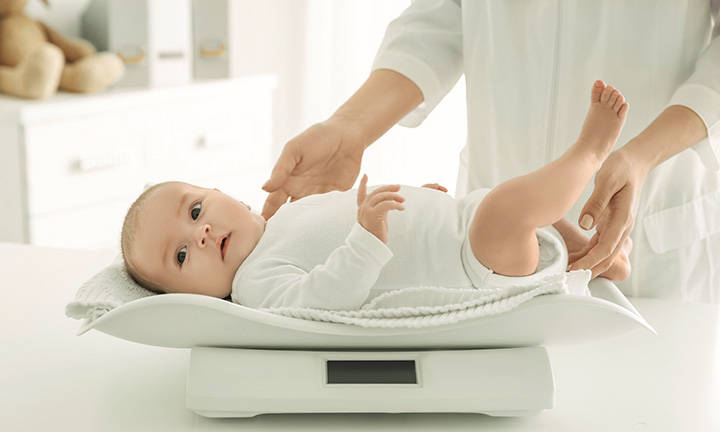Knowing your baby’s weight is key to ensuring its healthy growth and development. In this post, we’ll explore the why behind weighing at home, what steps are involved in taking accurate readings that help you monitor progress, plus tips for making it easier on both parent and child. Have questions? We’ve got answers! Read through our blog post to get all of the info needed before deciding if measuring with a scale should be part of your routine.
Why it’s important to weigh your baby at home
Monitoring your baby’s weight is key to its overall well-being. Keeping tabs on it allows you to easily spot any sudden growth changes, which can be an early indicator of health issues. Seeing the numbers go up shows that everything is progressing as expected and provides reassurance for parents concerned about their child’s development. Of course, if there are inconsistencies or concerns arise then reach out to a medical professional – but home weighing helps give families peace-of-mind by confirming that all’s well with no delays in diagnosis!
Steps on how to weigh your baby at home
New parents, prepare yourselves for a bundle of joy – and some extra pounds! Wondering how to keep track? Weighing your newborn at home is simpler than you think. Let’s explore the basics so those precious moments can be hassle-free.
- Ensure your baby is well taken care of during diapering by finding a sturdy and stable surface for them. A changing table or countertop provides the perfect place to diaper with peace of mind!
- Being prepared is key for accurately weighing your baby! Gather a scale, blanket, or towel to keep them cozy and comfortable while they’re being weighed, plus something sturdy like books or towels to help prop up the scale.
- It’s time to find out how much your baby has grown! Place the scale on a flat surface, wrap your little one up in a blanket or towel, and gently place them atop. If needed, use books or towels as support for the scale then marvel at just how much they’ve grown from birth. That number displayed is their weight – check it out!
- After each growth milestone, log your baby’s weight in a health journal or tracking app for an easy way to keep their progress at your fingertips. With some practice (and maybe even the occasional giggle from the baby), these weigh-ins will become quick and effortless!
What to do if the reading is not accurate
Weighing your baby at home can present some challenges! If you do so, try not to stress too much over the accuracy of a given reading. There are various factors that could render it less precise – like if they’ve eaten recently or used a different scale than what was available at their last doctor’s appointment. For an accurate assessment, leave about an hour between feedings and use similar equipment for consistent results.
Keep an eye on your baby’s weight with accurate, consistent readings! Weigh them at the same time and scale them every day to track changes over time. Make sure they’re gaining as expected – if you’re worried, get a professional opinion from their pediatrician just in case.
FAQs about weighing babies at home
Weighing your baby at home can be a tricky business. Here are a few frequently asked questions that might help:
Q: How do I weigh my baby at home?
A: The best way to weigh your baby at home is to use a digital scale. You can purchase one online or at a local store. Be sure to calibrate the scale before use.
Q: How often should I weigh my baby?
A: How often you weigh your baby will depend on their age and health. It is generally recommended that healthy, full-term babies be weighed once a week. However, if your baby is premature or has health concerns, you may need to weigh them more often. Check with your doctor for specific recommendations.
Q: What should I do if I’m not sure how much my baby weighs?
A: If you’re unsure of your baby’s weight, you can always take them to their doctor for a weight check. Many pediatricians offer walk-in hours for weight checks and other routine visits. You can also contact your local hospital or clinics to see if they offer baby weighing services.
Final thoughts on why it’s important to weigh your baby at home
Did you know accurately tracking your baby’s growth is essential for their healthy development? If home-weighing seems daunting, we’ve got some helpful tips to get the process going. Don’t forget – if you have specific queries or ideas on this topic, drop them in the comments!
We hope this information was helpful!
Reading suggestions:


